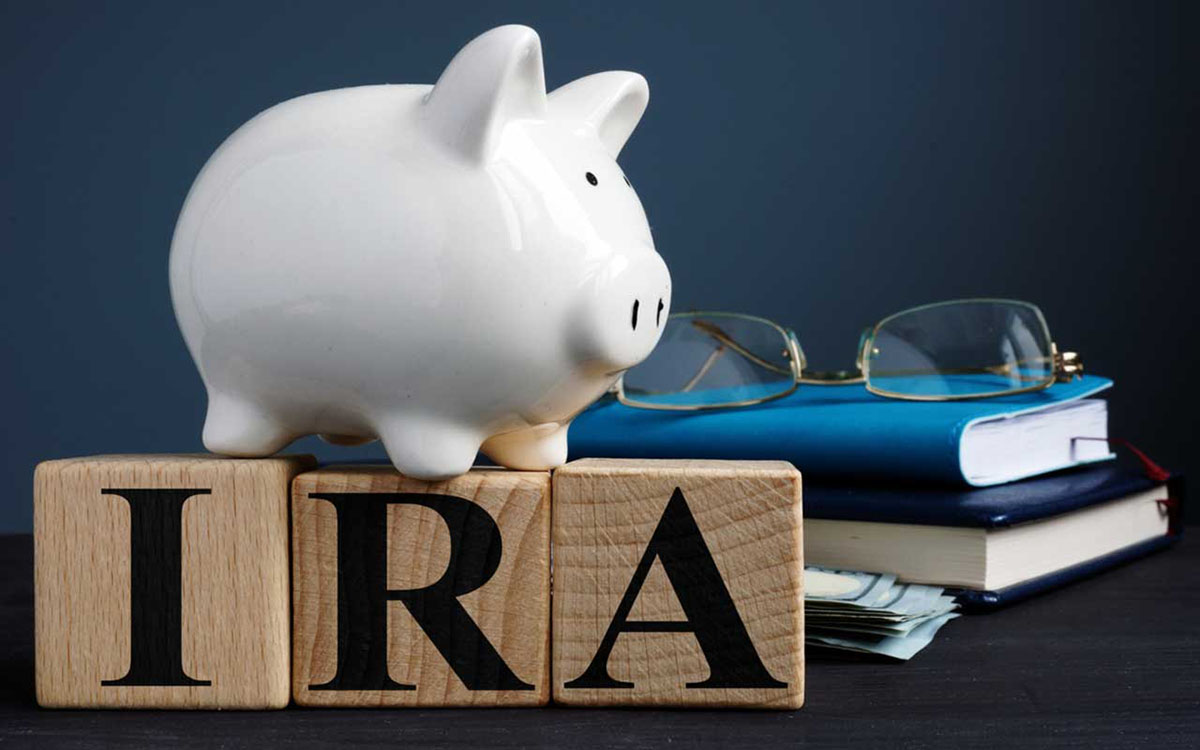

Finance
What Are Savings Accounts Good For
Published: January 16, 2024
Discover the benefits of savings accounts for your personal finances. Learn how these financial tools can help you achieve your finance goals and secure a stable future.
(Many of the links in this article redirect to a specific reviewed product. Your purchase of these products through affiliate links helps to generate commission for LiveWell, at no extra cost. Learn more)
Table of Contents
Introduction
A savings account is a fundamental financial tool that can help individuals and families manage their money more effectively. It is a type of deposit account offered by banks and financial institutions that allows you to store your money securely while earning interest on your balance.
When it comes to personal finance, savings accounts play a crucial role in achieving financial goals, whether it’s saving for a down payment on a home, starting an emergency fund, or simply growing your wealth over time.
In this article, we will explore the various benefits of savings accounts and understand why they are an essential component of a healthy financial strategy. We will also discuss important factors to consider before opening a savings account, so that you can make informed decisions about where to keep your hard-earned money.
So, if you’re wondering what savings accounts are good for and how they can benefit you, read on to discover the compelling reasons to open and utilize a savings account.
Understanding Savings Accounts
Before diving into the benefits of savings accounts, let’s start by understanding what they are and how they work. A savings account is a type of deposit account provided by banks and financial institutions that allows individuals to store their money while earning interest on their balance.
Unlike checking accounts that are primarily used for everyday transactions, savings accounts are designed for long-term savings goals. They offer a safe and secure place to keep your money and provide easy access to your funds when needed.
When you open a savings account, you deposit money into the account, which is held by the bank or financial institution. The deposited funds accrue interest over time, allowing your savings to grow. The interest rate is determined by the bank and can vary depending on factors such as the bank’s policies, prevailing market rates, and the account balance.
While savings accounts are generally considered low-risk investments, they offer comparatively lower interest rates compared to other investment options such as stocks or mutual funds. However, the primary purpose of a savings account is not to generate significant returns but to provide a safe and easily accessible place to store and grow your money.
Savings accounts also come with certain terms and conditions set by the bank. These may include minimum balance requirements, monthly maintenance fees, withdrawal limits, and interest payment terms. It’s important to carefully review and understand these terms and conditions before opening a savings account.
Overall, savings accounts are a reliable and convenient way to save money and earn interest on your balance. They offer a secure and accessible vehicle for your savings, allowing you to reach your financial goals and protect yourself against unexpected expenses. In the next section, we will delve into the numerous benefits of having a savings account.
Benefits of Savings Accounts
Having a savings account comes with a multitude of advantages that can positively impact your financial well-being. Let’s explore some of the key benefits of utilizing a savings account:
- Secure and Stable: Savings accounts provide a secure place to store your money. They are insured by the Federal Deposit Insurance Corporation (FDIC) in the United States, which means your deposits are protected up to $250,000 per depositor, per insured bank. This stability gives you peace of mind and safeguards your savings against unforeseen events.
- Easy Access to Funds: Unlike other long-term investment options, savings accounts offer easy access to your funds whenever you need them. Most banks provide multiple methods of accessing your money, including ATM withdrawals, online transfers, and branch visits. This accessibility ensures that you can easily use your savings for planned or emergency expenses.
- Interest Earnings: One of the primary advantages of a savings account is the ability to earn interest on your balance. While interest rates may be modest compared to other investment options, the power of compound interest over time can help your savings grow steadily. This can provide you with additional financial security and help you achieve your long-term goals faster.
- Goal Saving: Savings accounts are an excellent tool for goal setting. Whether you are saving for a down payment on a house, a dream vacation, or a new car, having a designated savings account can help you track your progress and stay motivated. Setting up automatic transfers to your savings account makes it even easier to stay on track towards your financial goals.
- Emergency Fund: Life is unpredictable, and having a savings account can be a lifesaver during challenging times. Building an emergency fund in your savings account ensures that you have a financial safety net to fall back on in case of unexpected expenses, such as medical bills, car repairs, or job loss. It can provide you with peace of mind knowing that you have funds readily available in times of crisis.
- Teaching Financial Discipline: By regularly contributing to your savings account, you develop a habit of saving and practicing financial discipline. This can have a positive impact on your overall financial well-being by helping you to resist impulsive spending and build a stronger financial foundation for your future.
- Multiple Saving Options: Banks often offer various types of savings accounts to cater to different needs. Some accounts may have higher interest rates but require a higher minimum balance, while others may have lower rates but no minimum balance requirements. This flexibility allows you to choose the type of savings account that aligns with your financial goals and preferences.
- Building Credit History: Having a savings account can also indirectly help you build your credit history. Lenders often consider factors such as savings stability and account management when determining your creditworthiness. By maintaining a healthy savings account and demonstrating responsible financial behavior, you can strengthen your credit profile, which may be beneficial when applying for loans or credit cards in the future.
Overall, savings accounts offer numerous benefits, ranging from security and accessibility to financial growth and discipline. They serve as a strong foundation for your financial journey and are integral to achieving your long-term financial goals.
Secure and Stable
One of the primary benefits of having a savings account is the security and stability it offers. Unlike keeping cash at home or carrying it around with you, a savings account provides a safe place to store your money.
Savings accounts are typically offered by banks and financial institutions that are regulated and insured by government agencies. In the United States, savings accounts are insured by the Federal Deposit Insurance Corporation (FDIC), which means that even if the bank were to fail, your deposits up to $250,000 per depositor, per insured bank are protected.
This level of security ensures that your hard-earned money is safeguarded against theft, loss, or damage. It provides a sense of peace and confidence in knowing that your savings are in a secure location, backed by industry regulations and safeguards.
Additionally, savings accounts offer stability for your financial wellbeing. Unlike other investment vehicles that may fluctuate in value, savings accounts are not subject to market volatility. This makes them a reliable option for preserving your money and protecting it from the ups and downs of the financial markets.
Moreover, savings accounts provide you with a stable and predictable method of saving towards your financial goals. Unlike investing in stocks or other riskier assets, savings accounts offer a low-risk way to accumulate funds over time. The interest earned on the account balance provides incremental growth, allowing your savings to steadily increase.
By prioritizing the security and stability offered by a savings account, you can have confidence in your financial future. Whether you’re saving for a specific goal or building an emergency fund, the secure and stable nature of a savings account ensures that your money is protected and steadily growing.
Easy Access to Funds
Another significant advantage of having a savings account is the easy access it provides to your funds when you need them. Unlike long-term investment options or assets that may have restrictions on accessing your money, savings accounts offer convenient accessibility.
Whether you need cash for a planned expense or an unexpected emergency, you can easily withdraw funds from your savings account. Most banks offer various methods of accessing your money, including ATM withdrawals, online transfers, and the option to visit a branch and withdraw cash in person.
ATM withdrawals provide a quick and convenient way to access your funds. With your debit card linked to your savings account, you can withdraw cash from ATMs located conveniently near you. This allows you to have immediate access to your money without the need for additional steps or waiting periods.
Online transfers offer another seamless method of accessing your savings. With online banking, you can transfer funds from your savings account to your checking account or any other linked accounts with just a few clicks. This allows you to use your savings for payments or transfers to other financial institutions as needed.
Furthermore, some banks provide mobile banking apps that allow you to manage your savings account from your smartphone. These apps typically offer features such as balance inquiries, transaction history, and the ability to transfer funds on the go. This level of accessibility ensures that your savings are readily available, even when you’re away from a physical bank location.
The easy access to funds provided by a savings account ensures that you can utilize your savings for a wide range of financial needs. Whether it’s covering everyday expenses, paying bills, or addressing unexpected emergencies, having quick and convenient access to your funds offers valuable financial flexibility and peace of mind.
It’s important to note that while savings accounts provide easy access to your funds, they may have certain limitations or restrictions. These can include withdrawal limits, minimum balance requirements, and fees for exceeding a certain number of transactions. It’s essential to review and understand these terms before opening a savings account to ensure that they align with your financial needs and usage.
In summary, a savings account offers the advantage of easy access to your funds, allowing you to use your savings whenever the need arises. Whether you prefer the convenience of ATMs, online banking, or mobile apps, a savings account ensures that your money is readily available for your financial requirements.
Interest Earnings
One of the key benefits of having a savings account is the opportunity to earn interest on your balance. While the interest rates offered by savings accounts may be relatively modest compared to other investment options, they can still provide a valuable source of additional income.
When you deposit money into a savings account, the bank uses those funds for various purposes, such as lending to other customers or investing in other financial instruments. In return for allowing the bank to use your money, you are rewarded with interest payments.
The interest rate on a savings account is typically expressed as an annual percentage yield (APY). This percentage represents the amount of interest you can expect to earn on your account balance over the course of a year. The APY may be influenced by several factors, including the current economic conditions, the bank’s policies, and the account’s balance.
While savings account interest rates may be lower compared to other investment options, such as stocks or bonds, they do offer a higher level of stability and security. This is particularly beneficial for individuals who are risk-averse and prioritize asset preservation over high-risk returns.
Moreover, the magic of compound interest comes into play with savings accounts. As your savings account balance grows, the interest you earn is added to your original deposit, creating a snowball effect. Over time, this compounding interest can significantly boost your savings and help your money grow more rapidly.
For example, let’s say you deposit $10,000 into a savings account with an annual interest rate of 2%. At the end of the first year, you would earn $200 in interest. In the second year, you would earn interest not only on your initial $10,000 deposit but also on the $200 in interest earned previously. This compounding effect continues to accumulate over time, allowing your savings to grow exponentially with minimal effort on your part.
Interest earnings from savings accounts can be particularly valuable when you have long-term financial goals in mind. Whether you’re saving for a down payment on a house, funding your child’s education, or planning for retirement, the interest earned over time can contribute significantly towards achieving these goals.
It’s important to note that interest earned on savings accounts is typically subject to taxes. The specific tax implications may vary depending on your country and jurisdiction. It’s advisable to consult with a tax professional or financial advisor to understand the tax implications and optimize the tax efficiency of your savings account.
In summary, earning interest on your savings account balance can provide a tangible financial benefit. While the interest rates may be lower compared to riskier investments, the stability and compound interest potential make savings accounts a valuable tool for growing your wealth over time.
Goal Saving
A savings account is a powerful tool for achieving your financial goals. It provides a structured and dedicated space to save money specifically earmarked for your desired objectives. Whether you’re saving for a down payment on a house, a dream vacation, or a new car, a savings account can help you stay focused and motivated.
One of the key advantages of using a savings account for goal saving is the ability to track your progress. With a designated account, you can monitor the growth of your savings over time and see how close you are to reaching your desired target. This visual representation can serve as a powerful motivator, inspiring you to stay disciplined and committed to your goal.
Setting up automatic transfers from your checking account to your savings account is an effective way to stay on track with your goal saving. By automating the process, a predetermined amount of money is transferred into your savings account at regular intervals, such as monthly or bi-weekly. This ensures consistent contributions towards your goal without requiring active effort on your part.
Moreover, having a separate savings account for each specific goal can help you prioritize and allocate your resources accordingly. For example, if you’re saving for both a vacation and a down payment, having separate accounts allows you to clearly identify and track the progress towards each goal independently.
Another benefit of goal saving with a savings account is the flexibility it offers. While some investment options may require a long-term commitment or have restrictions on accessing your money, savings accounts provide easy accessibility. This means that if you need to use some of your savings towards your goal, you can easily withdraw the necessary funds without penalties or limitations.
It’s important to periodically reassess your goals and adjust your savings strategy accordingly. As life circumstances change, you may need to reprioritize your goals or adapt your saving patterns. A savings account gives you the flexibility to modify your strategy as needed, allowing you to stay on track towards achieving your goals.
Lastly, reaching your savings goals can bring a great sense of accomplishment and financial empowerment. Whether it’s buying your dream home, taking that once-in-a-lifetime trip, or achieving any other milestone you’ve set for yourself, the act of goal saving with a savings account can help turn your aspirations into a reality.
In summary, a savings account provides a dedicated space for goal saving, allowing you to track your progress and stay committed to achieving your financial objectives. Through automated contributions, flexibility, and a sense of accomplishment, a savings account helps you effectively save for and reach your goals.
Emergency Fund
Having an emergency fund is a critical component of financial stability. Life is full of unexpected events and expenses, such as medical emergencies, car repairs, or sudden unemployment. That’s where a savings account becomes invaluable as it serves as a dedicated space for building and maintaining an emergency fund.
An emergency fund is a reserve of money set aside specifically for unforeseen circumstances. It provides a financial safety net, ensuring that you have funds readily available when emergencies arise. A savings account is an ideal place to store this fund due to its accessibility and stability.
One of the key benefits of using a savings account for your emergency fund is the easy access to your money. Emergencies can arise quickly, and having funds readily available can alleviate stress and provide peace of mind. With most savings accounts allowing for ATM withdrawals, online transfers, and branch visits, you can access your emergency fund promptly to address urgent situations.
By having a designated savings account for your emergency fund, you can also track and monitor its growth over time. This allows you to set specific savings goals for your fund and gauge your progress accordingly. It’s generally recommended to aim for at least three to six months’ worth of living expenses in your emergency fund, although the exact amount may vary depending on individual circumstances.
A savings account also offers stability and security for your emergency fund. Banks and financial institutions are regulated and insured, providing protection for your deposits. Additionally, the interest earnings on your emergency fund can help it grow over time, making it even more robust and resilient.
Building an emergency fund in a savings account encourages financial discipline and responsible money management. Regular contributions to your emergency fund through automatic transfers or consistent manual deposits instill a habit of saving and ensure that you’re continuously building your safety net.
Having an emergency fund is not only about being prepared for unexpected expenses but also about avoiding debt and maintaining financial stability. Without an emergency fund, you may be forced to rely on credit cards, loans, or other high-interest options in times of crisis. By proactively saving and building an emergency fund in a dedicated savings account, you can mitigate the financial impact of unforeseen events and avoid unnecessary debt.
In summary, a savings account serves as an ideal vehicle for building an emergency fund. Its accessibility, stability, and ability to track progress make it an invaluable tool in preparing for and managing unexpected financial challenges. Establishing and maintaining an emergency fund in a savings account can provide you with a sense of security, confidence, and peace of mind.
Teaching Financial Discipline
Financial discipline is a crucial skill that can significantly impact your overall financial well-being. A savings account can serve as a valuable tool for teaching and reinforcing financial discipline, helping you develop good money habits and responsible financial behavior.
By making regular contributions to your savings account, you cultivate a habit of saving. Whether you set up automatic transfers or manually deposit funds, the act of consistently setting aside a portion of your income builds discipline and reinforces the importance of saving for the future.
Having a savings account with specific goals in mind also encourages goal-oriented financial behavior. You learn to differentiate between short-term wants and long-term needs, making conscious decisions about how to allocate your funds. This shift in mindset fosters responsible financial decision-making, which can have a positive impact on your overall financial journey.
Additionally, a savings account allows you to set savings milestones and track your progress. Seeing your balance grow over time provides a sense of accomplishment and reinforces the rewards of disciplined saving. It encourages you to stay committed to your financial goals and motivates you to continue building your savings over the long term.
Furthermore, having a designated savings account promotes mindful spending. As you actively contribute to your savings, you become more mindful of your everyday expenses. You start to evaluate and prioritize your spending, distinguishing between needs and wants. This awareness can curb impulsive buying habits and encourage smarter financial choices.
Savings accounts also teach the value of delayed gratification. Instead of immediately satisfying every desire or impulse, you learn to save and wait for larger, more significant purchases. This practice helps in developing patience and a deeper appreciation for the things you truly value.
The discipline cultivated through a savings account extends far beyond just saving money. It influences other aspects of your financial life, such as budgeting, debt management, and investment decisions. The skills and habits developed through saving in a disciplined manner can be applied to various financial challenges and opportunities throughout your life.
In summary, a savings account serves as an effective tool for teaching financial discipline. It encourages regular contributions, goal setting, mindful spending, delayed gratification, and other responsible financial behaviors. By incorporating these habits into your financial routine, you can build a strong foundation of financial discipline that will positively impact your financial future.
Multiple Saving Options
Savings accounts offer a range of options to cater to different individual needs and preferences. Banks and financial institutions provide various types of savings accounts, each with its own features and benefits. This variety of options allows you to choose the type of savings account that aligns with your financial goals and requirements.
One of the primary considerations when selecting a savings account is the interest rate offered. Different savings accounts may have different interest rates depending on factors such as the bank’s policies and the account balance. Some accounts may offer higher interest rates but require a higher minimum balance, while others may have lower rates but no minimum balance requirements. Having multiple options allows you to find the account that offers the most favorable combination of interest rates and balance requirements for your specific needs.
Another aspect to consider when exploring different savings account options is access to additional features and services. Some savings accounts may offer benefits such as free ATM withdrawals, online banking capabilities, mobile banking apps, or even rewards programs. These additional features can enhance your banking experience and make it more convenient to manage your savings.
Furthermore, some banks provide specialized savings accounts that are designed for specific purposes. For example, you may come across accounts tailored to saving for education, retirement, or even for purchasing a specific item, such as a car. These targeted savings accounts can help you stay focused on your specific financial goals and provide additional benefits or incentives to further motivate your saving efforts.
In addition to traditional savings accounts, some financial institutions offer high-yield savings accounts. High-yield savings accounts often offer higher interest rates compared to standard savings accounts, allowing you to earn more on your savings balance. These accounts can be particularly beneficial if you have a larger sum of money to save, as they can help accelerate your savings growth.
Alongside traditional savings accounts, there are also certificates of deposit (CDs) that banks offer. CDs require a fixed deposit for a predetermined period, during which the funds are locked, and in return, usually offer higher interest rates compared to regular savings accounts. This option can be suitable if you have a specific savings goal with a fixed timeline in mind.
Having multiple savings options ensures that you can choose the account that best suits your needs and preferences. It gives you the flexibility to optimize your savings strategy and maximize your earning potential while accommodating your specific financial goals and circumstances.
It’s important to compare the different savings account options available to you, considering factors such as interest rates, fees, accessibility, additional features, and any associated terms and conditions. By thoroughly researching and understanding the various options, you can make an informed decision about the savings account that best aligns with your financial objectives.
In summary, the availability of multiple savings account options allows you to tailor your savings strategy to your specific needs and preferences. Whether you prioritize higher interest rates, additional features, or specialized accounts, having choices empowers you to find the account that best supports your financial goals.
Building Credit History
While savings accounts are not directly linked to credit scores, they can still play a role in building a positive credit history. Financial institutions may consider factors such as savings stability and account management when determining your creditworthiness. Having a savings account and managing it responsibly can contribute to a positive credit profile.
One way a savings account can indirectly impact your credit history is by demonstrating financial stability. Lenders and creditors often look for stability and consistency in an individual’s financial behavior. Maintaining a healthy savings account over time showcases your ability to save, manage your finances, and meet financial commitments.
In addition, having a long-standing savings account signals to lenders that you have established a financial track record. The longer the duration of your account relationship, the more evidence you provide of your financial responsibility and commitment to building a solid financial foundation.
Furthermore, a savings account can provide a sense of financial security and act as a safeguard against future credit issues. By having a savings cushion in place, you are better equipped to handle unexpected expenses or financial setbacks without resorting to credit cards or borrowing. This responsible financial behavior can positively impact your credit history by demonstrating your ability to handle financial challenges effectively.
While savings accounts do not directly contribute to your credit score, they can indirectly help build credit by improving your overall financial health. By consistently saving and managing your finances well, you are likely to have a positive impact on your creditworthiness, which lenders may take into account when considering you for credit applications.
It’s important to note that building credit history is a multifaceted process that involves various factors. While having a savings account can contribute positively, it’s also essential to manage other aspects of your financial life responsibly. This includes making timely payments on your credit cards and loans, keeping your credit utilization low, and maintaining a diversified credit mix.
Building credit history takes time and requires responsible financial behavior across multiple areas. By incorporating a savings account into your financial routine and demonstrating good money management skills, you are taking a step towards building a strong credit foundation.
Ultimately, while a savings account alone may not directly impact your credit score, it can indirectly contribute to your overall financial health and creditworthiness. By exhibiting responsible financial behavior, establishing stability, and managing your finances well, you can build a positive credit history over time.
Factors to Consider Before Opening a Savings Account
Before opening a savings account, it’s important to consider several factors to ensure that you choose the account that best fits your financial needs and goals. Here are some key factors to consider:
- Interest Rates: Compare the interest rates offered by different banks or financial institutions. Higher interest rates can help your savings grow faster over time, so it’s important to find an account with a competitive rate.
- Fees: Determine if the savings account has any monthly maintenance fees, minimum balance requirements, or fees for excessive transactions. Consider your financial situation and usage patterns to choose an account that minimizes fees or offers fee waivers based on your circumstances.
- Access and Convenience: Consider the accessibility and convenience of the savings account. Can you easily access your funds through ATMs, online banking, or mobile apps? Evaluate the convenience of depositing and withdrawing money, as well as the availability of customer support services.
- Minimum Balance Requirement: Some savings accounts require a minimum balance to be maintained to avoid fees or gain certain benefits. Assess whether the minimum balance is feasible for your financial situation and if it aligns with your saving goals.
- Deposit Insurance: Verify that the bank or financial institution is insured by a reputable deposit insurance agency. In the United States, for example, the Federal Deposit Insurance Corporation (FDIC) insures deposits up to $250,000 per depositor, per insured bank. Deposit insurance provides an added layer of protection for your savings.
- Additional Services: Consider additional services offered by the bank, such as online banking features, mobile apps, or rewards programs. These services can enhance your banking experience and make it more convenient to manage your savings.
- Customer Reputation: Research the reputation and customer reviews of the bank or financial institution. Look for feedback on their customer service, reliability, and overall customer experience. A bank with a solid reputation can give you peace of mind and a positive banking relationship.
- Financial Goals: Evaluate how the savings account aligns with your financial goals. Consider whether the account gives you the flexibility to set and track specific savings goals, automate contributions, or segregate funds for various purposes.
- Terms and Conditions: Read and understand the terms and conditions of the savings account, including interest payment terms, withdrawal restrictions, and any associated penalties or limitations. Ensure that the account’s terms are suitable for your needs and compatible with your intended use of the account.
By considering these factors, you can make an informed decision about the savings account that best suits your financial situation and objectives. Taking the time to assess these considerations will ensure that your savings account aligns with your goals and helps you maximize the benefits of saving and growing your money.
Conclusion
A savings account is a valuable financial tool that offers numerous benefits. From providing a secure and stable place to store your money to offering easy access to funds, a savings account plays a crucial role in managing your finances effectively.
The interest earnings on a savings account, though modest compared to other investment options, can still contribute to the growth of your savings over time. Additionally, a savings account serves as a powerful tool for goal saving, helping you stay focused and motivated to achieve your financial objectives.
Furthermore, a savings account can act as a vital component of your financial safety net by serving as an emergency fund. With easy accessibility, you can quickly access your funds when unexpected expenses arise, helping you avoid unnecessary debt and maintain financial stability.
A savings account also fosters financial discipline by encouraging regular saving habits and responsible money management. It teaches valuable lessons in delayed gratification, mindful spending, and the importance of building a strong financial foundation.
Moreover, the availability of multiple savings account options allows you to choose an account that best suits your needs and preferences. Whether you prioritize higher interest rates, additional features, or specialized accounts, having choices empowers you to find the account that supports your financial goals.
Lastly, while savings accounts may not directly impact your credit scores, they indirectly contribute to building a positive credit history by demonstrating financial stability and responsibility. Managing your savings account responsibly can positively influence lenders’ perception of your creditworthiness and overall financial health.
In conclusion, a savings account is an essential tool for managing your money, achieving your financial goals, and building a solid financial foundation. By carefully considering the factors discussed and selecting the right savings account for your needs, you can make the most of this financial tool and pave the way to a secure and prosperous financial future.














